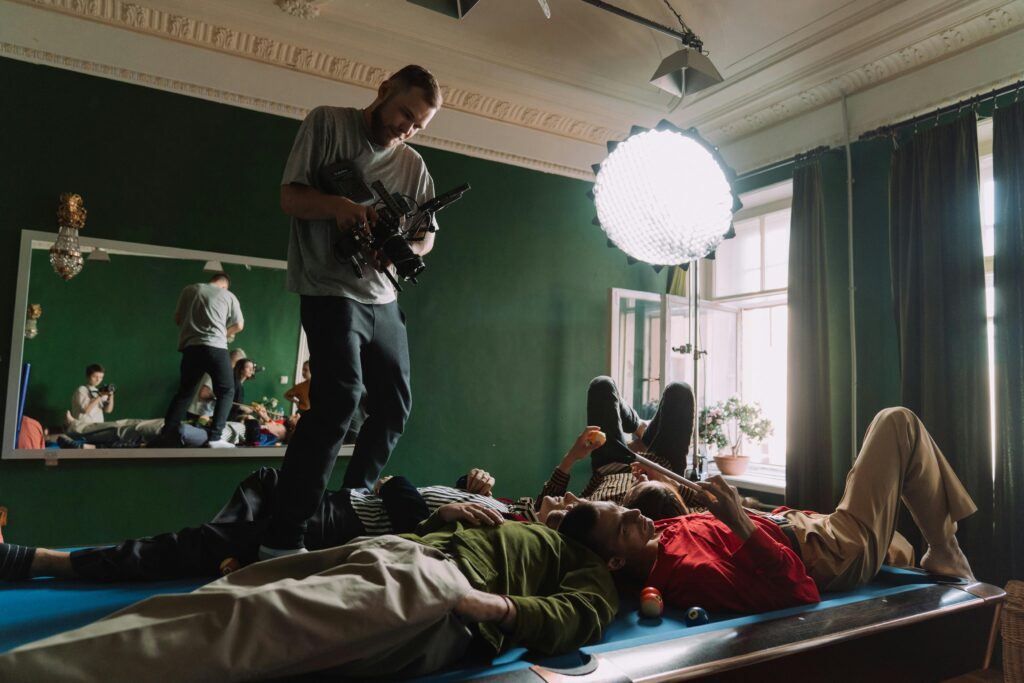Emmanuel Lubezki, often referred to as “Chivo,” is a renowned Mexican cinematographer celebrated for his innovative techniques and artistic vision. His work has significantly influenced modern filmmaking, earning him multiple Academy Awards and widespread acclaim.
Early Life and Career Beginnings
Born on November 30, 1963, in Mexico City, Emmanuel Lubezki Morgenstern developed a passion for cinema early in life. He studied film at the National Autonomous University of Mexico, where he met future collaborator Alfonso Cuarón. Their partnership began with the short film “Vengeance Is Mine,” marking the start of Lubezki’s illustrious career.
Signature Cinematographic Techniques
Natural Lighting
Lubezki is renowned for his masterful use of natural light, creating authentic and immersive visuals. This technique is evident in films like “The Revenant,” where he utilized natural light to enhance the film’s realism and emotional impact.
Long Takes and Continuous Shots
Another hallmark of Lubezki’s style is the use of extended, unbroken shots. In “Birdman,” he employed continuous takes to create a seamless, immersive experience, drawing viewers deeper into the narrative.
Wide-Angle Lenses
Utilizing wide-angle lenses, Lubezki captures expansive scenes that convey a sense of grandeur and depth. This approach is prominent in “Gravity,” where the vastness of space is portrayed with breathtaking clarity.
Collaborations with Prominent Directors
Lubezki’s collaborations with esteemed directors have produced some of cinema’s most visually stunning works.
Alfonso Cuarón
His partnership with Cuarón includes films like “Children of Men” and “Gravity,” both showcasing innovative cinematography that pushes the boundaries of visual storytelling.
Alejandro González Iñárritu
Working with Iñárritu on “Birdman” and “The Revenant,” Lubezki’s cinematography played a pivotal role in the films’ critical success, earning him consecutive Academy Awards.
Terrence Malick
Collaborations with Malick, such as “The Tree of Life,” highlight Lubezki’s ability to capture poetic and contemplative visuals that complement Malick’s philosophical narratives.
Notable Films and Achievements
Lubezki’s filmography is extensive, with several standout works:
- “A Little Princess” (1995): A visually enchanting adaptation that earned Lubezki his first Academy Award nomination.
- “Children of Men” (2006): Known for its groundbreaking long takes and dystopian imagery.
- “Gravity” (2013): A technical marvel that won Lubezki his first Academy Award for Best Cinematography.
- “Birdman” (2014): Recognized for its continuous shot illusion, earning Lubezki a second consecutive Oscar.
- “The Revenant” (2015): A visually stunning survival epic that secured Lubezki his third consecutive Academy Award.
Impact on Modern Cinematography
Lubezki’s innovative techniques have set new standards in cinematography, inspiring filmmakers to explore natural lighting, long takes, and immersive visuals. His work demonstrates the power of visual storytelling in enhancing narrative depth and emotional resonance.
Common Questions About Emmanuel Lubezki
- What awards has Emmanuel Lubezki won? Lubezki has won three consecutive Academy Awards for Best Cinematography for “Gravity,” “Birdman,” and “The Revenant.”
- Which directors has Lubezki frequently collaborated with? He has worked extensively with Alfonso Cuarón, Alejandro González Iñárritu, and Terrence Malick.
- What is Lubezki’s approach to lighting in films? He prefers using natural light to create authentic and immersive visuals.
- How does Lubezki achieve the continuous shot effect? Through meticulous planning and coordination, he uses long takes and seamless editing to create the illusion of a single continuous shot.
- What are some notable films shot by Lubezki? Notable films include “A Little Princess,” “Children of Men,” “Gravity,” “Birdman,” and “The Revenant.”
Conclusion
Emmanuel Lubezki’s contributions to cinematography have profoundly impacted the film industry. His innovative techniques and artistic vision continue to inspire filmmakers and captivate audiences worldwide.


